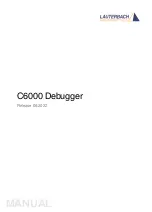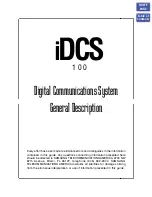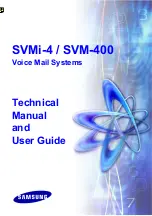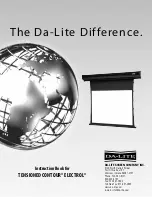
2
EN
Dear Valued Customer,
Thank you for purchasing this DAEWOO Power Tool.
We are dedicated to providing quality Power Tools at competitive prices. Whether you are serious
about DIY or just a casual user, our range of power tools are perfect for any job.
1. DESCRIPTION OF SYMBOLS
Charger and Battery Packs. Please pay particular attention to all sections of this User Guide
that carry warning symbols and notices.
2. GENERAL POWER TOOL SAFETY WARNINGS
WARNING: Read all safety warnings and all instructions. Failure to follow the warnings and
instructions may result in electric shock, fire and/or serious injury.
Save all warnings and instructions for future reference.
The term "power tool" in the warnings refers to your mains-operated (corded) power tool or
battery-operated (cordless) power tool.
5. TECHNICAL DATA
This symbol indicates that the batteries supplied with this product must not be treated as
general household waste. To remove them safely, you must bring them to your retailer or
discard of them in special containers provided for the community. At the end of the device's
life, remember to remove the batteries.
BATTERY PACK AND CHARGER SAFETY INSTRUCTIONS
If under extreme conditions any electrolyte should escape from the battery, it is essential to avoid
contact with skin. If electrolyte does come into contact with your skin, rinse it off with water. In the
event of electrolyte contact with your eyes, it is essential to consult a doctor.
a) Before use of the charger and the battery pack, read the instruction manual for it carefully.
b) During the charging process, the current used should correspond to the current of the battery
charger.
c) Never let moisture, rain or splashed water reach the charging location.
d) The ambient temperature must not be less than 0ºC nor exceed 40ºC when charging. Do not use
or store drill or batteries in temperatures in excess of 40ºC.
e) Battery Packs which are defective or damaged, or can no longer be re-charged, must be dispo-
sed of as hazardous waste. Hand them over at a special collection point. Never harm our environ-
ment. Do not throw unusable battery packs away into the domestic waste, into fire or into water.
f) If the electrical cable is damaged, it may only be replaced by the supplier or by his repair works-
hop. Have repairs carried out only by an authorized specialist only.
g) Use only battery packs which have been produced by the original manufacturer. Use only the
charger supplied with your power tool.
h) Always keep the surface of the charger free from dust and dirt.
i) Insert the battery pack into the charger following the guidelines provided concerning polarity.
j) Always remove battery pack before working on the power tool.
k) When the battery pack is outside the drill, cover the contacts to avoid short circuits (e.g. from
tools or metal surfaces)
l) Do not throw battery packs into water or fire - risk of explosion!
m) Protect the battery pack from impacts, and don’t attempt to open it.
n) Never discharge the battery pack completely, and recharge occasionally if not used for a prolon-
ged period.
ADDITIONAL SAFETY RULES CONCERNING BATTERY
• To ensure longest battery life and best battery performance, always charge the battery when the
air temperature is between 18–24°C. Do not charge the battery pack when the temperature is below
0°C, or above 40°C. This is important. Failure to observe this safety rule could cause serious
damage to the battery pack.
• Do not incinerate the battery pack even if it is seriously damaged or can no longer hold a charge.
The battery pack can explode in a fire.
• A small leakage of liquid from the battery pack may occur under extreme usage or temperature.
This does not necessarily indicate a failure of the battery pack. However, if the outer seal is broken
and this leakage comes into contact with your skin:
- Wash the affected area quickly with soap and water.
- Neutralise the liquid with a mild acid such as lemon juice or vinegar.
If the leakage gets in your eyes:
Flush your eyes with clean water for a minimum of 10 minutes and seek immediate medical atten-
tion. Inform the medical staff that the liquid is a 25-35% solution of potassium hydroxide.
• Never attempt to open the battery pack for any reason. If the plastic housing of the battery pack
breaks open or cracks, immediately discontinue its use and do not recharge it.
• Do not store or carry a spare battery pack in a pocket or toolbox or any other place where it may
come into contact with metal objects. The battery pack may be short circuited causing damage to
the battery pack, burns or a fire. If storing or disposing the battery pack, cover the terminals with a
heavy insulation tape to ensure short circuit cannot occur. Batteries, when stored for a long period
of time, will discharge.
• Do not store or use the tool and battery pack in locations where the temperature may reach or
exceed 40°C such as alongside sheds or metal structures in the summer.
• Allow the battery pack to cool down after charging. Do not place it in a hot environment such as a
metal shed or open trailer left in the sun.
• Only charge the battery with the charger supplied.
• When transporting individual batteries, make sure that the battery terminals are protected and well
insulated from materials that could contact them and cause a short circuit.
• The battery is to be disposed of safely.
ADDITIONAL SAFETY RULES CONCERNING CHARGER
• Before using the charger, read all the instructions and cautionary markings on the charger and
battery pack as well as the instructions on using the battery pack.
• Only charge your batteries indoors as the charger is designed for indoor use only.
DANGER: If the battery pack is cracked or damaged in any other way, do not insert it in the
charger. There is a danger of electric shock or electrocution.
WARNING: Do not allow any liquid to come into contact with the charger. There is a danger
of electric shock.
• The charger is not intended for any use other than charging the exact type of rechargeable battery
pack as supplied with the charger. Any other use may result in the risk of fire, electric shock or
electrocution.
• The charger and battery pack supplied with it are specifically designed to work together. Do not
attempt to charge the battery pack with any other charger than the one supplied.
• Do not place any object on top of the charger as it could cause overheating. Do not place the
charger near any heat source.
• Pull on the charger to disconnect it from the power source. Do not pull on the lead.
• Make sure that the charger cable is positioned where it will not be stepped on, tripped over or
otherwise subjected to damage or stress.
• Do not use an extension cord unless it is absolutely necessary. The use of an improper extension
cord could cause the risk of fire, electric shock or electrocution.
• Do not use the charger if it has been subjected to a heavy knock, dropped or otherwise damaged
in any way. Take the charger to an authorised service centre for a check or repair.
• Do not disassemble the charger. Take it to an authorised service centre when service or repair is
required. Incorrect re-assembly may result in the risk of fire, electric shock or electrocution.
• To reduce the risk of an electric shock, unplug the charger from the power supply before attemp-
ting to clean it. Removing the battery alone does not reduce the risk.
• The charger is designed for use with standard household electrical supply. Do not attempt to
connect the charger to a supply with a different voltage.
• The charger is not intended for use by persons (including children) with reduced physical, sensory
or mental capabilities, or lack of experience and knowledge, unless they have been given supervision
or instruction concerning use of the charger by a person responsible for their safety.
• Children should be supervised to ensure that they do not play with the charger.
• Do not charge non-rechargeable batteries.
3. BATTERY AND CHARGER OPERATING INSTRUCTIONS
This charger, DALCH-25-1, and the battery packs DALB-20-1 and DALB-40-1, are for use only with the
range of DAEWOO Cordless Power Tool Skins. Do not attempt to use the batteries with other brands
of tools, or to charge the batteries with other types of battery chargers.
• The batteries are supplied in a partially charged condition and must be fully charged before use. The
battery will reach full capacity only after being charged and discharged several times.
• Avoid short periods of charging. Only charge battery pack when it is almost fully discharged.
• Adaptor, charger and battery pack may be warm when charging. This is normal.
Charging:
Ensure the charger is unplugged when inserting and removing battery packs.
• Slide the Battery Pack onto the Charger. The Battery Pack will only fit into the Charger in the correct
orientation.
• Plug in the Charger to the mains socket outlet.
• The red LED will light up. While the red LED is alight, the Battery Pack is being charged. Normally, it
will take approximately 1 hour to fully charge a Battery Pack.
• When the red LED turns off, and only a green LED is seen, the Battery Pack is fully charged.
• Unplug the Charger from the mains, and slide the Battery Pack off the Charger.
• Unplug the Charger when not in use.
4. MAINTENANCE AND CLEANING
Attention! Always remove the battery before carrying out any work on the tool.
To clean the Battery Pack or Charger, use a dry or moist, but not wet, towel. Many cleaning agents
contain chemical substances which may cause damage to the plastic parts of the tool. Do not use any
strong or flammable cleaners such as petrol, paint thinner, turpentine or similar cleaning agents. Avoid
letting water into the interior of battery or charger. Always keep air ventilation holes free of dust depo-
sits to prevent overheating. Wear a dust mask and use a soft brush to clean the ventilation holes.
Servicing this tool must be done by a qualified person only. Service or maintenance performed by
unqualified personnel could result in a risk of injury.
If the tool does not work properly, return the tool to a service facility for repair.
If the electrical cable is damaged, it may only be replaced by the supplier or by his repair workshop.
Observe caution and safety notes!
Caution - electric shock! Danger to life!
n
0
No-load speed.
V~
AC Voltage
Wear hearing protection, dust protection mask,
protective glasses and
protective gloves when using power tools.
Keep children away from electrical power tools!
Protect electrical power tools from moisture!
Check that the device, mains lead and plug are in good condition!
Safety Class
II
Dispose of packaging and appliance in an environmentally friendly way!
!

































